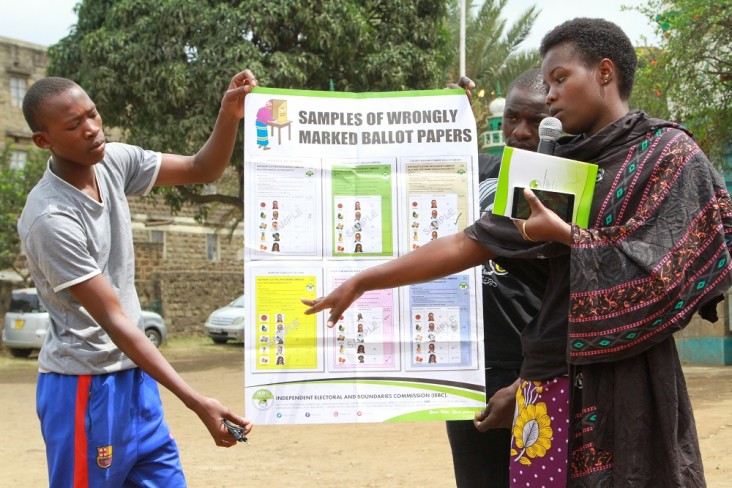Speeches Shim

Kenya has reached many democratic milestones in the past decade, including:
- Creation and sharing of an inclusive and progressive Constitution in 2010.
- Kenya’s adoption and institutionalization of a more decentralized governance structure of 47 county governments under the new constitution.
- The formulation of county-level action plans to counter violent extremism. Community members, religious leaders, security officials, and government representatives participated in the development and implementation of these plans.
USAID partners with the Kenyan people, civil society, the private sector, ministries, Parliament, and other Government of Kenya institutions to strengthen national policies and advance the devolution process. Achieving good governance, including devolution, transparent systems, and public accountability, is a long and challenging process. Good governance will make Kenya more inclusive, transparent, and accountable. It will also help Kenyans to achieve their aspirations.
PROGRAM AREAS
Devolution and Support to County Governments
USAID encourages county governments to operate with greater transparency, accountability, and inclusion. We work with citizens, the private sector, civil society, county executives, and county assemblies on a broad range of programs. Our work includes broadening public participation, increasing the voice of citizens, including women, youth, and other marginalized groups. We also support training, on-the-job mentoring, experiential learning, promoting county-driven development, and enhancing communication between the national and county governments.
Supporting Free and Fair Elections
Since the introduction of a multiparty democracy in 1992, Kenya has made significant advances in administering, dedicating sufficient budgets, and participating in elections. The U.S. Government is committed to supporting Kenya to guarantee the independence of the electoral commission, foster a free press and civil society that can oversee the elections, and reduce the drivers of election violence.
Empowering Civil Society
Kenyan civil society plays an important role in government oversight. We work with civil society organizations to create an enabling environment for increased civic engagement. We also build the capacity of local organizations and coalitions for sustained and inclusive development. There is a need for citizen voice, collaboration, and oversight for improved governance at national and county levels. USAID prioritizes support to grassroot organizations for locally-led development and builds the capacity of civil society to engage and catalyze citizen support for development through local philanthropy.
Countering Violent Extremism
Attacks by violent extremist groups within Kenya’s borders have increased in recent years. Kenyan citizens, particularly marginalized youth are recruitment targets for violent extremist groups. We protect U.S. national security while advancing aspects of Kenya’s National CVE Strategy, supporting government and communities to work together to detect and address radicalization and violent extremism.
FACT SHEETS
Overview: Democracy, Governance and Conflict
Activity Fact Sheets
Agile Harmonized Assistance for Devolved Institutions (AHADI)


Comment
Make a general inquiry or suggest an improvement.